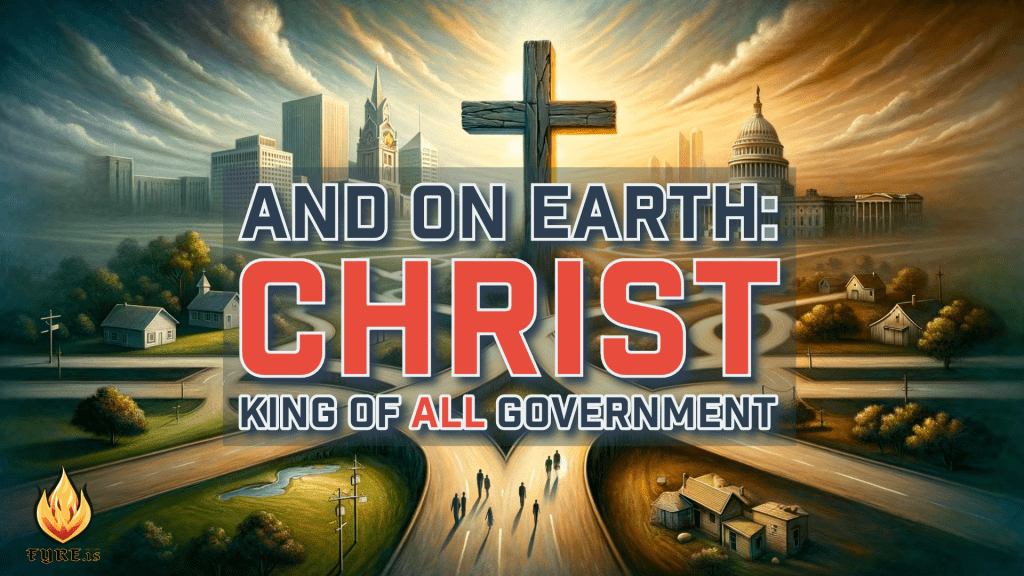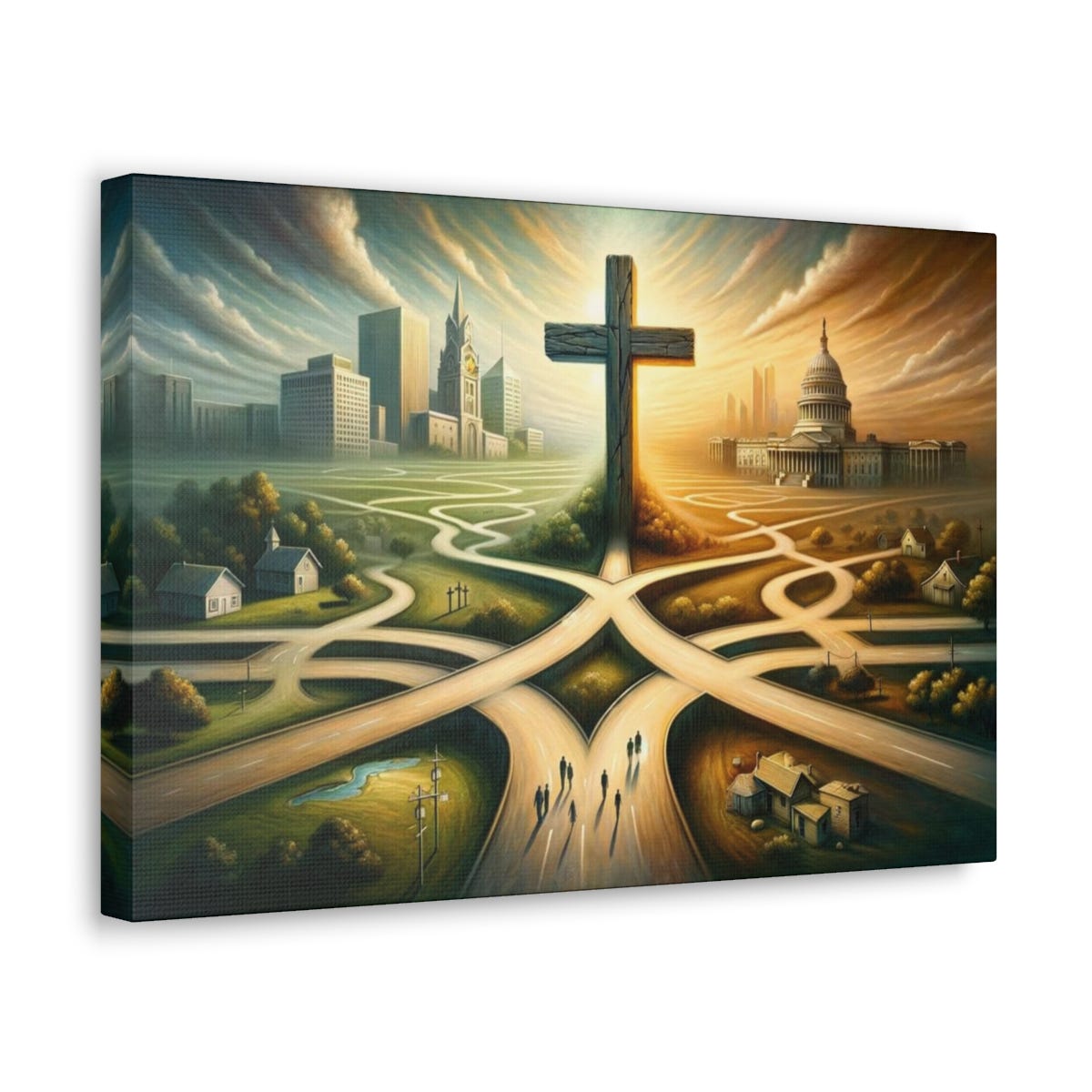The Great Commission and its implication for civil government
In a world where the lines between spiritual and secular are increasingly blurred, the teachings of the Bible provide clear guidance on the role of Christians in society. Scripture, particularly in Matthew 28:18-20 and Ephesians 1:22, not only empowers but obligates believers to engage in all aspects of life, including the realm of civil government. Christians, both individually and within their local church communities, are commanded by Christ to assert a Biblical worldview in public affairs.
This introduction to a Biblical approach to civic involvement underscores the importance of distinguishing between the church’s influence and the state’s authority while affirming the Christian’s duty to uphold God’s truth in every area of life.
FYRE.IS is a reader-supported publication. To receive new posts and support my work, consider becoming a free or paid subscriber.

All Authority, All Things
The Great Commission (Matthew 28:18-20):
18 Then Jesus came to them and said, “All authority in heaven and on earth has been given to me. 19 Therefore go and make disciples of all nations, baptizing them in the name of the Father and of the Son and of the Holy Spirit, 20 and teaching them to obey everything I have commanded you. And surely I am with you always, to the very end of the age.”
Ephesians 1:22:
22 And God placed all things under his feet and appointed him to be head over everything for the church,
Please note the often overlooked phrase “All authority in heaven and on earth”. This means that Jesus is not just Lord over organized church, but commerce, engineering and, yes, civil government and politics, and anything else on this earth you can think of. This commands the Church (the Body of Christ) to be involved in all affairs of the world — including politics. This is contrary to the wildly overused phrase “separation of church in state,” which often is used to imply Christianity must be left out of civil government. As theologian R.J Rushdoony once said:
Every system of laws is an establishment of religion. There is no such thing as a neutral law. A law is not neutral, for example, about murder or theft. A law can be just, but it cannot be neutral. Laws are either humanistic, or they’re Christian, or they’re Buddhist, or they’re Islamic, or whatever. You can never separate religion and civil government. It’s impossible.
The philosophy Christianity can be left out of any sphere of life, especially that which influences the well-being of society as a whole is a complete fallacy. There is no “neutral” system of belief. Abandoning God’s word as our standard of law and ethics may be poignantly exemplified in the annual human sacrifice of over 1 million preborn children at the altar of Planned Parenthood.
Go Therefore
The teachings of Scripture, particularly in Matthew 28:18-20, call for an active Christian presence in all spheres of life, “Go therefore…” including civil government. This mandate does not imply that the church, as an institution, should assume the role of the governing authorities. Rather, it encourages individual Christians and local churches to engage prophetically and practically in politics and governance. Local churches should empower their members to participate in civic matters, advocate for Biblical values in public policy, and preach the gospel in the halls of power.
This engagement, however, must be distinguished from a sacral system where the church as an institution wields direct governmental authority. The role of the church is not to govern civil affairs but to influence them by upholding Biblical standards and moral ethics. The separation of church and state is not a barrier to Christian influence; instead, it allows for a healthy dialogue between the two, where the church can freely exercise its prophetic voice.
Conclusion
In conclusion, the church and Christians have a vital role in shaping civil governance, not by blurring the lines between ecclesiastical and civil authority, but by being active, informed, and Biblically grounded participants in the public square. This approach ensures that while the church remains distinct from the state, it continues to profoundly impact society by advocating for laws and policies that reflect the justice, mercy, and righteousness of God.
Love the featured image? Now you can put it on your wall and support FYRE.is. A limited run of ten 24×16 and fifteen 18×12 canvas prints are available exclusively from our online store. Decorate your home, office, or church with beautiful Christian-made art and support our continued ministry efforts.

